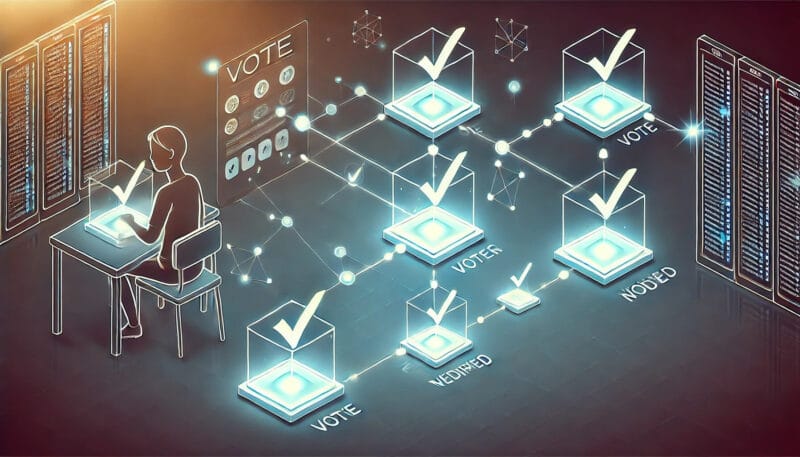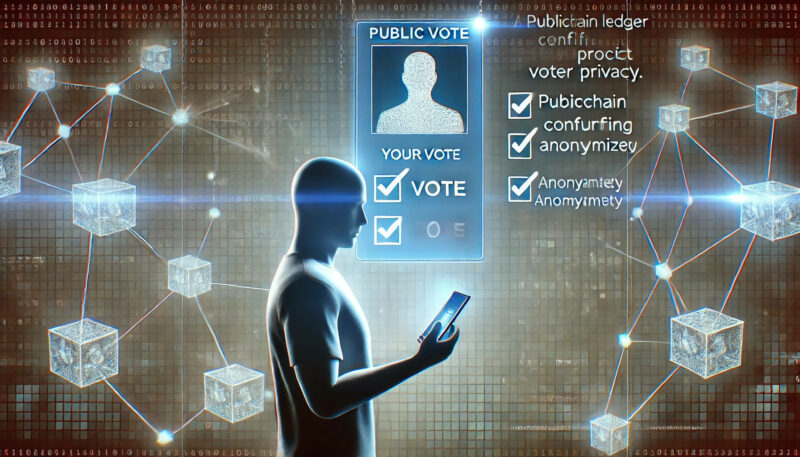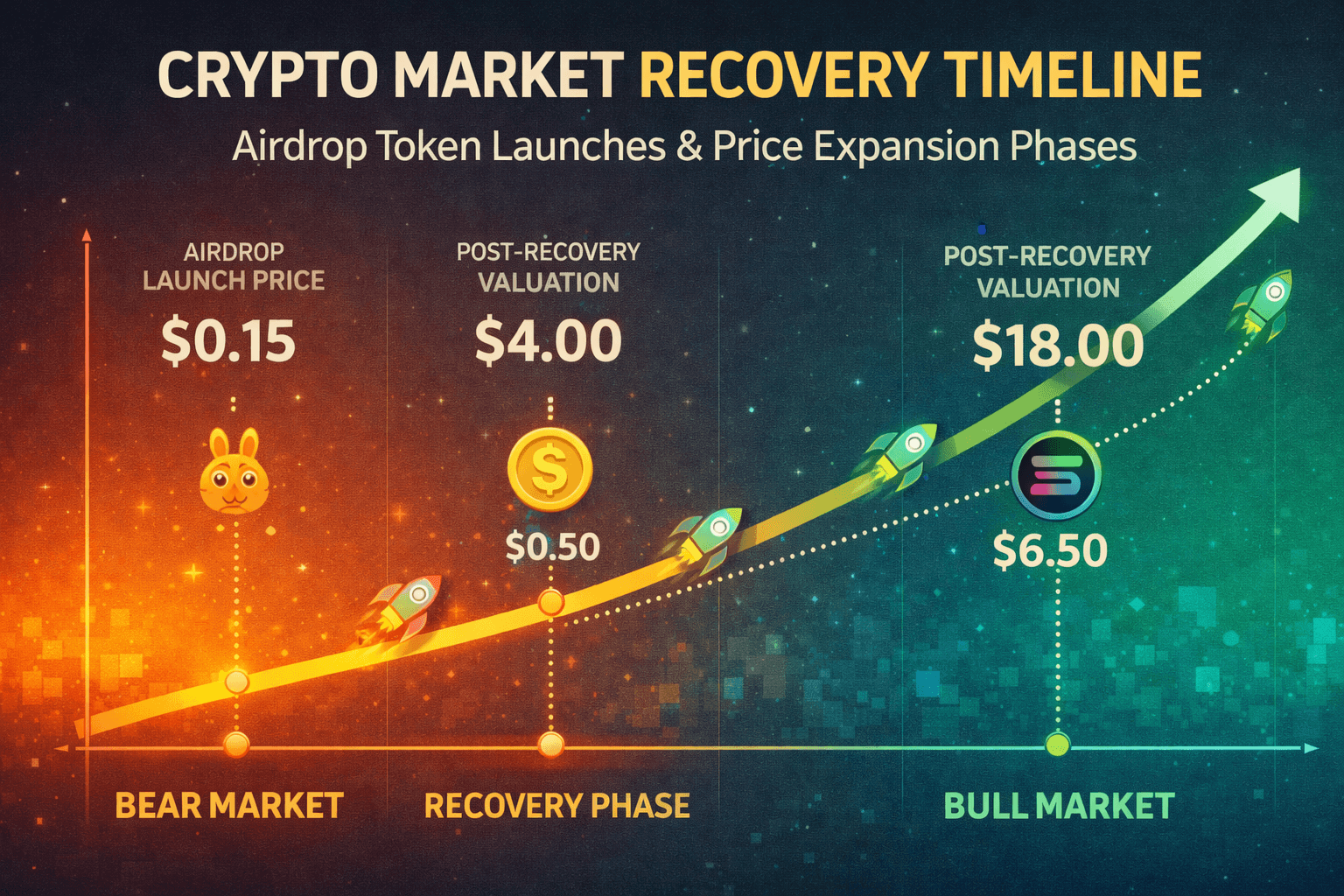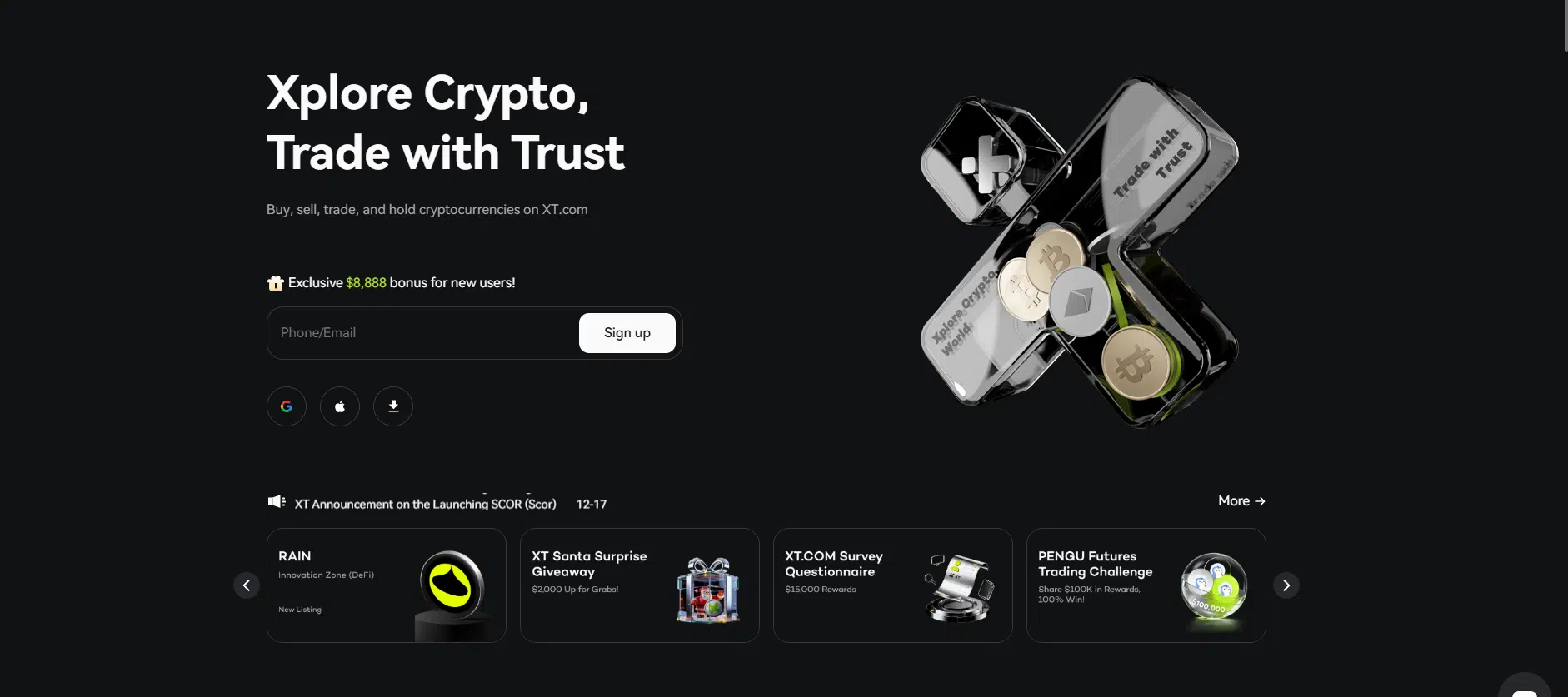Voting remains a cornerstone of democracy, but traditional methods often face challenges related to transparency, security, and accessibility. Issues like voter fraud, vote tampering, and limited access to polling stations can undermine trust in elections. However, blockchain technology offers a solution. Its decentralized, secure, and transparent system addresses many of the weaknesses in current voting processes.
In this article, we’ll explore how blockchain is revolutionizing the way we vote and improving the overall integrity of elections.
Common Problems with Traditional Voting Systems
Before understanding how blockchain improves voting, it’s important to look at the challenges posed by current systems:
- Lack of Transparency: Voters often can’t verify whether their votes were counted accurately.
- Voter Fraud and Tampering: Traditional voting systems face risks from ballot stuffing, tampering with machines, and hacking.
- Accessibility Issues: Some voters, especially those in remote areas, struggle to access polling stations or voting tools.
- Slow Processing: Manual vote counting or outdated electronic systems can result in delays when reporting election outcomes.
These challenges create opportunities for manipulation and mistakes, making it harder for people to trust the results.
How Blockchain Enhances Voting
Blockchain technology provides a secure, transparent, and tamper-proof voting system that addresses many of the issues seen in traditional methods. Here’s how it works:
1. Increased Security
Blockchain ensures that each vote is securely encrypted and recorded. Since the data is spread across multiple nodes (computers in the network), any attempt to tamper with a vote would be immediately flagged. Unlike traditional systems where a hacker can attack a single server, blockchain makes it nearly impossible to alter the results.
Example: If a voter casts a ballot using a blockchain-based system, every node in the network records the vote. Even if someone tries to manipulate a single record, the system would detect the inconsistency and reject the tampered vote.
2. Full Transparency
Blockchain creates an open ledger where all votes are publicly recorded. While voters remain anonymous, they can verify that their votes were counted. This level of transparency reassures voters that the process is fair, as no single party controls the vote count.
Example: After casting their vote, a person can check the blockchain ledger to confirm that their vote was included in the final count, without revealing their identity.
3. Fraud Prevention
Because blockchain is immutable (meaning data, once recorded, cannot be altered), it prevents voter fraud. In traditional voting systems, tampering with ballots or hacking voting machines is a real concern. Blockchain’s decentralized structure eliminates these vulnerabilities.
Example: In the 2018 Sierra Leone elections, a blockchain pilot project provided a tamper-proof record of votes. Any attempt to alter the votes would have been detected immediately by the network, ensuring that the results remained secure.

4. Voter Accessibility
Blockchain simplifies the voting process, allowing citizens to vote from their homes or wherever they are. This accessibility is especially helpful for people living in rural areas, citizens residing abroad, or those with mobility challenges. Blockchain-based voting ensures that everyone can participate in elections without the need to visit a polling station.
Example: In West Virginia’s 2018 midterm elections, military personnel stationed overseas used blockchain-based voting via a mobile app. This system provided a secure and accessible method for them to vote, increasing voter participation in this group.
5. Faster Results
Blockchain enables real-time vote counting, meaning results are available immediately after voting ends. Traditional voting systems often delay results due to manual counting or slow digital systems. Blockchain’s instant verification process can eliminate this issue, delivering accurate results faster.
Protecting Voter Privacy
Blockchain not only offers transparency but also protects voter privacy. The technology separates the voter’s identity from their vote, ensuring that no one can link a vote back to a specific individual. Advanced encryption techniques allow for vote verification without compromising privacy.
Example: Platforms like Follow My Vote allow voters to confirm that their votes were counted while keeping their identities confidential. This balance of privacy and transparency builds trust in the voting process.
Real-World Examples of Blockchain Voting
Several countries and regions are already testing blockchain voting systems with encouraging results:
- Sierra Leone: In 2018, the country tested blockchain voting to ensure transparency and prevent tampering. The project created a public ledger of votes, making it impossible for anyone to alter the election results.
- Estonia: Estonia, a leader in digital governance, has explored using blockchain to enhance its existing online voting system, ensuring that votes are secure and tamper-proof.
- Switzerland: Multiple Swiss cantons have experimented with blockchain voting, improving both the transparency of elections and voter engagement.
Overcoming Challenges in Blockchain Voting
While blockchain has the potential to revolutionize voting, there are still some hurdles to overcome before it becomes widely adopted.
- Scalability: Handling millions of votes in a blockchain system can be challenging. Developers must ensure that blockchain technology can scale efficiently for national elections.
- Digital Divide: Not everyone has access to the necessary technology or internet connection to participate in blockchain-based voting. Governments will need to address this gap to ensure that all citizens can vote.
- Regulatory Frameworks: Governments and election bodies need to establish clear legal frameworks to regulate blockchain voting and ensure its compliance with election laws.
As these challenges are addressed, blockchain voting could become more mainstream, offering a safer and more transparent method of voting.
Wrapping Up: A Secure Future for Voting
Blockchain technology has the potential to transform the voting process, making elections more secure, transparent, and accessible. By eliminating the vulnerabilities of traditional systems, blockchain voting can restore trust in elections and ensure that every vote counts. As governments explore this technology, we may soon see a future where blockchain powers national and local elections around the world.
For more insights and detailed guides on blockchain’s role in secure voting, visit our Blockchain and Voting Guides.
Stay Updated
For the latest updates on blockchain technology and its applications in secure voting, follow us on:
Stay informed with the latest strategies and insights in the world of blockchain at FreeCoins24.io.
Special Offer
Interested in exploring blockchain for secure voting solutions? Sign up on Bybit today and enjoy up to $30,000 in deposit bonuses. Start implementing blockchain solutions for secure voting today!

















